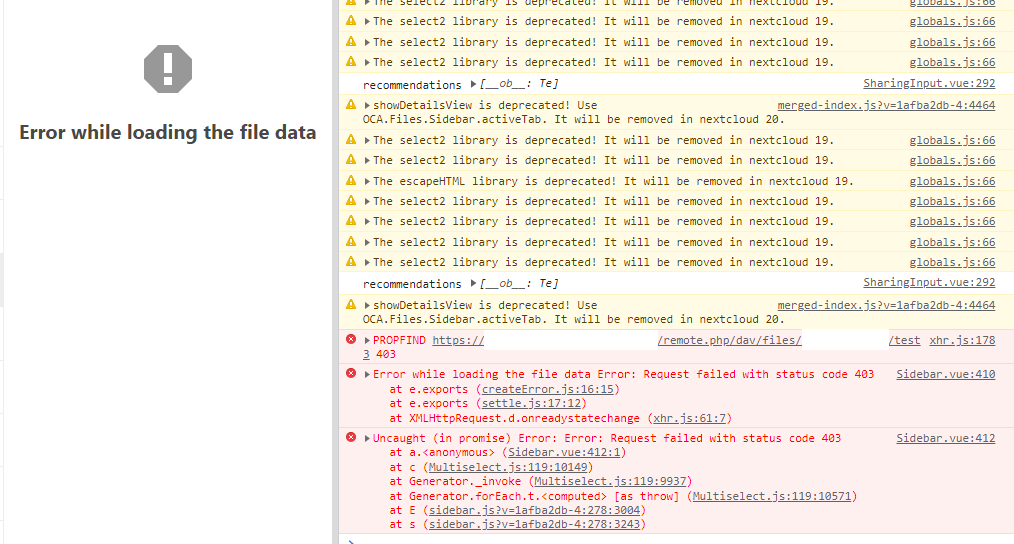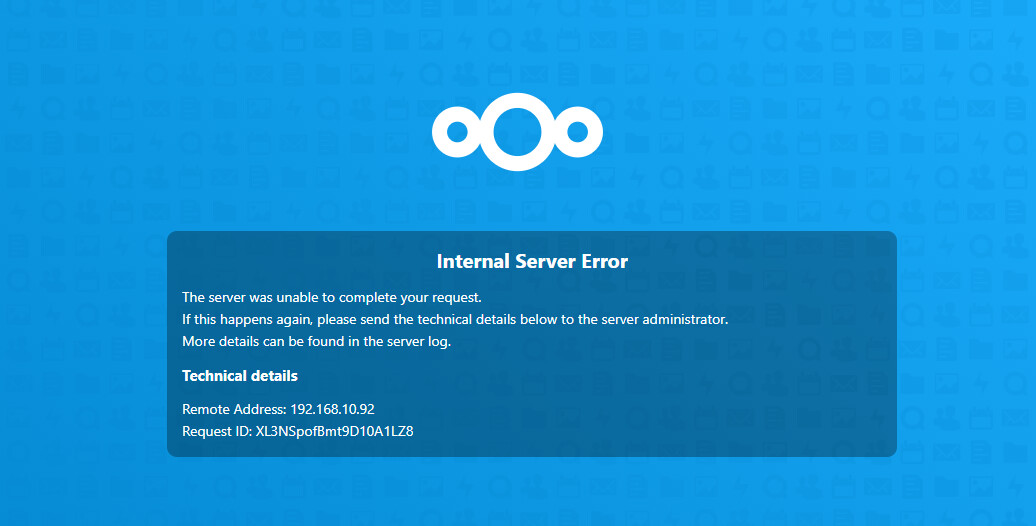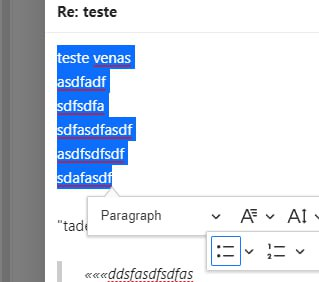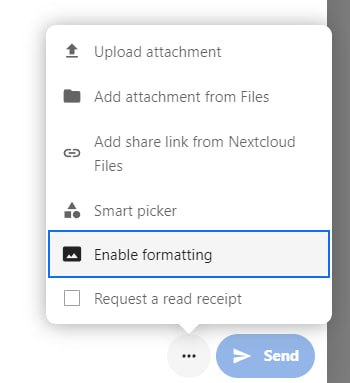After months of waiting, I finally got myself an instance with Libre Cloud. I was expecting basic file storage with a few goodies but boy, this is soooo much more. I am amaze by how complete this is!!! Apps let me configure my instance to fit everything I need, my workflow is now crazy fast and I can finally say goodbye to gdrive, gsuite, trello, calendar, etc. All of this, with 1tb while not giving any of ma data to some evil business for… 10$ cad a month!? Can’t believe this is not what every organisation are using.
Really a pain in the ass to set up and tweak to your liking. After you overcome that hurdle, it runs relatively good.
Using Nextcloud AIO takes that pain away if you are into Docker. It has everything needed bundled in it, including a db and web server.
I was surprised to know that there is no tool to pass from Nextcloud to AIO.
That’s saddening. I think that best you can do is a backup of your data and restore it when using AIO is setup
True. Have a setup running on Kubernetes with their helm chart but the documentation is (or at least was) insufficient on what is important to back up, so I had to start over once, learning the hard way that the config file contains the one string you always need for recovering data. Since then, it is pretty stable and I had almost no problems.
What was it? I’m planning to do a nextcloud deployment via helm soon.
Update: seems like the persistence section is sufficient; I have
persistence: enabled: true existingClaim: nextcloud-config-claimat the end of my values file which references a volume claim (and volume) that I created manually upfront. The importand file is config.php. Back that thing up immediately and three times, print it if you have to. The secret in there is unrecoverable otherwise and needed for any repair actions.
I also use the postgresql sub-chart (by simply enabling postgresql as database) and provide a claim there:postgresql: enabled: true global: postgresql: auth: username: XX password: YY database: nextcloud image: repository: postgres tag: "14" postgresqlDataDir: /bitnami/pgdata primary: persistence: enabled: true existingClaim: nextcloud-db-claimHope it helps!
I think it was literally called “config”. I will check my setup and provide the mount points I used here later today, if you back these up, it should work. Put some disposable data on it once you finished setup and then upgrade to a newer version to see if everything works. You can specify the image tag to use manually (or you install an older chart version).
I also pinned the postgres version to 14, not sure if I can recommend that but I had issues with DB upgrades in a docker installation, so I tend to be careful there.
docker-compose up -dOof what a pain this was! Glad it finally works and I can move on with my life!!
TIL “setting up and tweaking Nextcloud to your liking” = starting docker
Hey hey hey. That’s not fair. You also have to
sudo apt install docker.io docker-composeYou really should not install those from the distro repositories. They are far less up-to-date. This is the official documentation for adding the Docker repository to a Debian system, there’s one for Ubuntu as well. You can just copy and paste the entire code block from step 1. Afterwards you can just use apt to install it, but you want to use this command to make sure you get everything you need:
sudo apt install docker-ce docker-ce-cli containerd.io docker-buildx-plugin docker-compose-pluginInstalling it this way will mean you need to use the
docker composecommand, notdocker-composewhich is deprecated.
I’ve been running it for about 6 years, literally never did me dirty.
Docker compose pull every couple weeks, bump the major version whenever it’s time, migrations always work.
I run Nextcloud for many, many years. I hosted it for a very long time at Hetzners second lowest tier of Webspace they rent. It was not very fast there (you get what you pay for), but fast enough for our need here. Later I moved it to an Azure VM and after that to my Homeserver where it runs blazingly fast, especially since the last updates they pushed out.
In all that time I never reinstalled. I just upgraded to the newer versions when they were out. The only times I had problems upgrading was when I was hosting at the cheap Webspace instance at Hetzner and an upgrade process took longer than the PHP timeout my very cheap hosting instance provided. So it was never a fault of Nextcloud, but just that I hosted it on basically the cheapest hosting plan I could find.
We use it for file sharing, calendar + contacts (+ Sync with DAVx), Notes and of course Talk. For talk to make full use of Voice + Video calls, you should have a TURN Server, but if you do not use that (if you just text) it was running great even on the Webspace instance at Hetzner.
We are very happy in our family that it exists, that it is free and that it serves us well since many years.
I’m a massive Nextcloud fan and have a server up and running for many years now.
But I understand all of the downvoted commenters. It is clunky and buggy as hell at times. Maybe it’s less noticeable when you’re running a single user instance, but once you have non tech literate users using it you begin to notice how inferior it is to the big boys like google drive in some aspects.
That said, I personally have a decent tolerance for fiddling and slight frustrations as a trade off for avoiding privacy disrespecting and arguably evil corporations.
I would recommend everybody looking for a gdrive, Dropbox, one drive alternative to at least give Nextcloud a go.
Been working great for me for years! You do need to take care when setting up for a stable and consistent experience, but their docs are pretty thorough and regularly updated.
Libre Cloud’s head office is a unit on an industrial estate: 82A James Carter Rd, https://maps.app.goo.gl/nu75EEHEDFbY5PMW9 (Update: it’s a virtual office address, which doesn’t really inspire confidence for me)
They probably colocate at data centres.
Personally, I’m on Hetzner’s Storage Share (Nextcloud but without Collabora), and I’d prefer to trust my data to them: https://www.hetzner.com/storage/storage-share/
Regardless of your choice, I definitely agree that nextcloud rocks.
Yes, it is very good. It’s great to use perpetually half made software.






If you don’t like bugs, you shouldn’t be using software. Especially not software designed to do more than one thing. And extra especially not software designed to run on more than one system.
But maybe a Casio watch would be fine for you. Mine hasn’t had any bugs.
The point is that every single feature they try to add to it ends up as yet another buggy thing that never gets fixed. They should focus on making the core things works decently instead of adding new features. After all this time they didn’t get the sync to be as reliable as Syncthing, why would they venture into webmail’s and whatnot ?
Webmail has been a Nextcloud feature for years. They improved it. That’s literally what you just asked for. Improving the core components.
They improved it? You can’t even add a bullet list. No way to have a full screen typing experience. It’s slow like no other and basic formatting tools are already hidden. Is that what you call improvements?
I understand that everyone doesn’t always have a perfect experience but I’ve been using the same instance of nextcloud for over 8 years I just keep upgrading and migrating. It just works. Only issues I’ve had is when Debian withholds updating php for too long or when they finally do all the config files for php get fucked and I have to redo them all.
Use docker
I hear ya but my instance is old (before i knew docker) and just works on the rails. I also tweak the heck out of it for performance so I deal with the annoyance once every two years. If it completely blows up I might roll it on docker.
It’s alright. It is confusing as shit to use though. Their UI is terrible.
Sorry you’re getting down voted so much. I personally don’t have this problem, but if you do it’s a valid experience. UX is not easy to get right for the masses.
Take my upvote. I use owncloud, I have no need for apps on my self hosted cloud backup.







